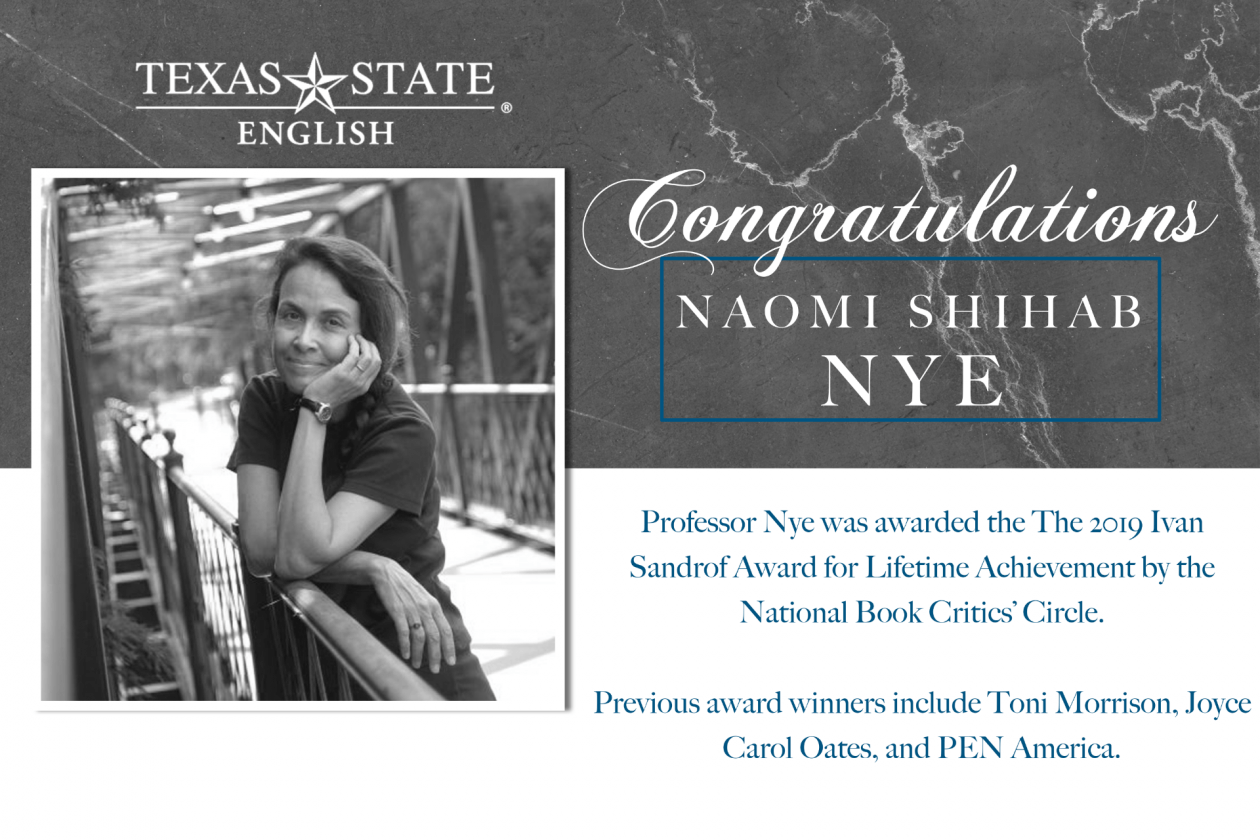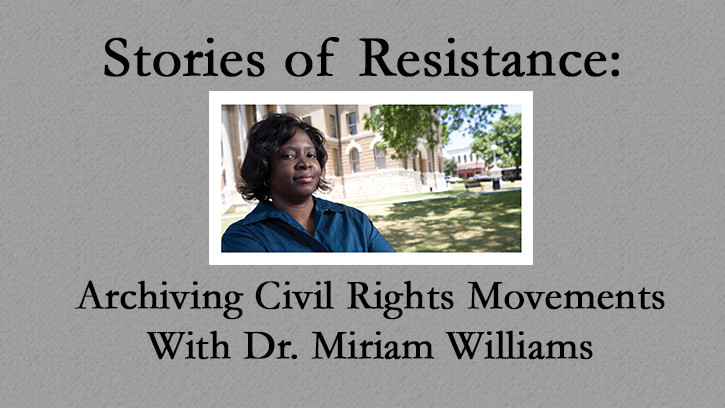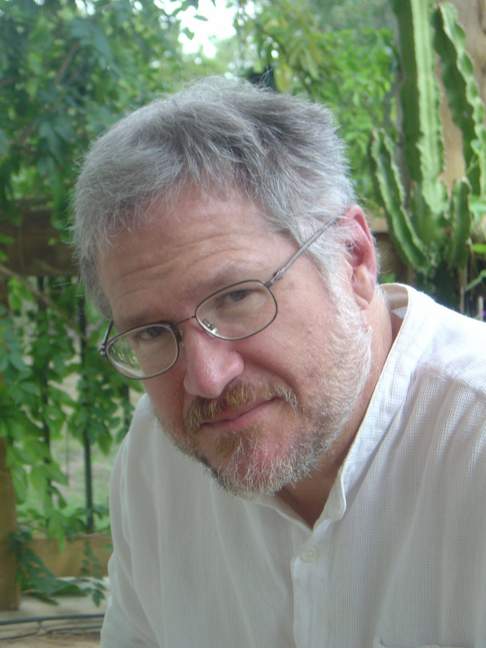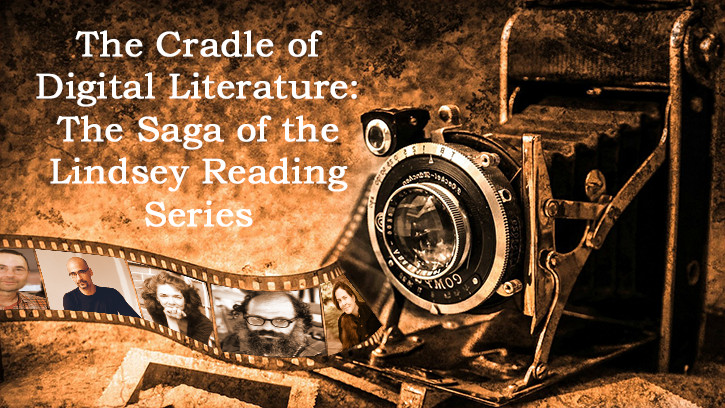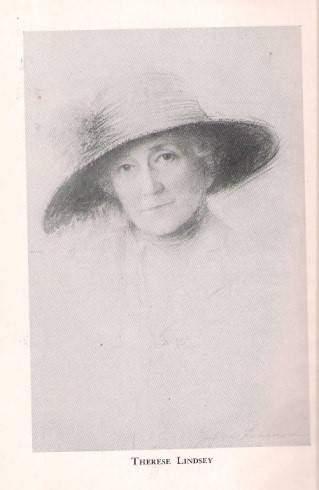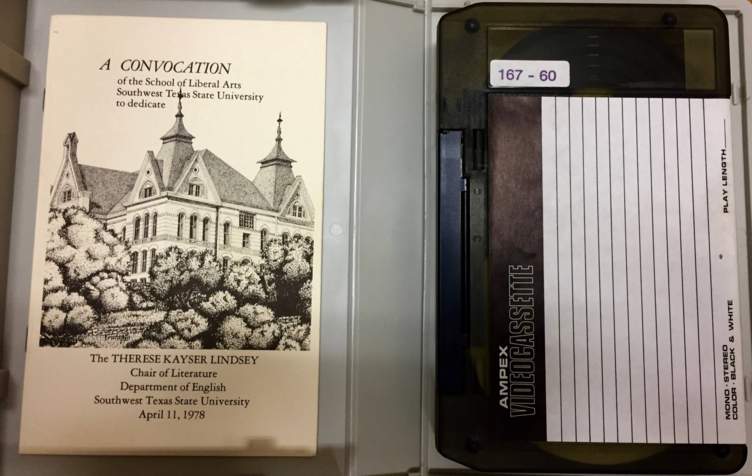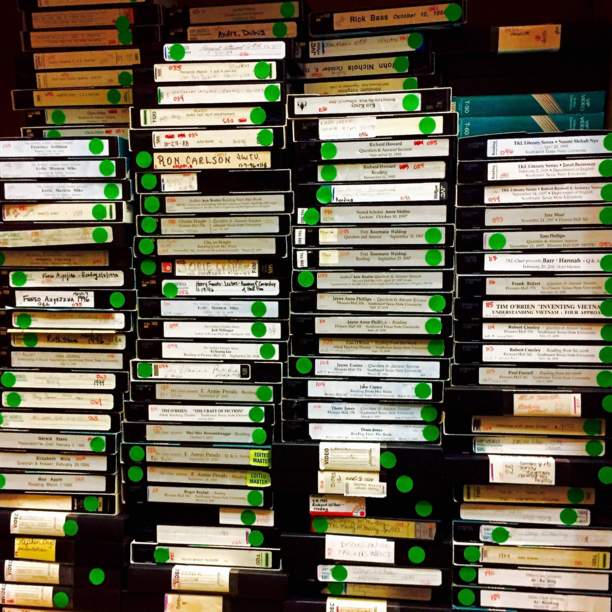The following faculty were recognized this May for major achievements during the 2019-20 academic year:
Rebecca Bell-Metereau. Transgender Cinema. Rutgers University Press, 2019.
Recipient of Choice magazine’s Outstanding Academic Title award.
Cyrus Cassells. Still Life with Children: Selected Poems of Francesc Parcerisas.
Stephen F. Austin State University Press, 2019.
Cyrus Cassells. Recipient of Guggenheim Fellowship, awarded April 2019.
Jennifer DuBois. The Spectators. Penguin Random House, 2019.
Logan Fry. Harpo Before the Opus. Omnidawn, 2019. Recipient of Omnidawn’s 1st/2nd Book Prize.
Eric Leake. Recipient of Senior Fulbright Fellowship from the Fulbright U.S. Scholar Program. 2019.
Susan Signe Morrison. Recipient of two awards from Literary Classics, the Gold Medal in Historical Young Adult and Words on Wings Book Award, in 2019 for
Home Front Girl: A Diary of Love, Literature, and Growing Up in Wartime America. Chicago Review Press, 2018.
Cecily Parks. Recipient of Poetry Society of America Lucille Medwick Memorial Award, 2019, for the poem, “The Rio Grande.”
Robert T. Tally, Jr. Topophrenia: Place, Narrative, and the Spatial Imagination. Indiana University Press (“Spatial Humanities”) series, 2019.
Julie McCormick Weng. Co-edited with Kathryn Conrad and Cóilín Parsons, Science, Technology, and Irish Modernism, Syracuse University Press, 2019.
Steve Wilson. The Reaches. Finishing Line Press, 2019.
Katie Kapurch’s “‘Photograph’- We Are All Ringo Now” (https://www.culturesonar.com/photograph-we-are-all-ringo-now/), “Astrid Kirchherr: What She Taught the Beatles” (https://www.culturesonar.com/astrid-kirchherr-what-she-taught-the-beatles/) and “Martha Wash’s “Love and Conflict” – The Album for 2020” (https://www.culturesonar.com/martha-washs-love-and-conflict-the-album-for-2020/)were published on CultureSonarrecently. Katie also has a chapter, “A Girls’ Studies Approach to YA Literature,” in Teaching Young Adult Literature, an edited collection published by MLA (2020).
MFA poetry student James Trask finished 1st and received cash prizes in two contests that are part of a series of annual contests administered by the Austin Poetry Society, each with different requirements for poetic form and/or theme. Both poems will be published in the forthcoming edition (2019-2020) of Best Austin Poetry. James also placed 2nd in five other contests, winning additional cash prizes. In an eighth contest, his poem was distinguished with an Honorable Mention.
English Major Courtney Ludwick’s article, “A Dishonest Wardrobe: Fashion and Costume in Geoffrey Chaucer’s ‘General Prologue,’” was published in Texas State Undergraduate Researchthis Spring. She was mentored by Susan Morrison.
“Rereading Stephen King on the Eve of My MFA,” an essay by MFA fiction student Steph Grossman, appeared in The Masters Review: https://mastersreview.com/new-voices-rereading-stephen-king-on-the-eve-of-my-mfa-by-steph-grossman/
MA Literature student Luise Noé (Germany) was awarded a P.E.O. International Peace Prize Scholarship. She is one of 15 students on campus, one of 2 from the College of Liberal Arts. The scholarship, established in 1949, provides up to $12,500 of support for women from countries other than the United States and Canada who are pursuing graduate studies in one of those two countries. Luise worked on her application with the External Funding Specialists in the Graduate College.
Cyrus Cassells was interviewed by the Lambda Literary Reviewin support of the April publication of his new chapbook at Nine Mile Press, More Than Watchmen at Daybreak:https://www.lambdaliterary.org/2020/04/cyrus-cassells/. He was also interviewed as feature poet in the latest issue of Borderlands: The Texas Review: https://www.borderlands.org/featuredpoet?fbclid=IwAR09ZxhRb6KCfC26z5F3avVxsgOwGLLN7zi1cn1_-aQDBjN4jFJgSGj3gJw.
Jon Marc Smith was interviewed by Publishers Weeklyas part of a feature on new thrillers coming out in 2020: https://www.publishersweekly.com/pw/by-topic/new-titles/adult-announcements/article/82768-border-disorder-mysteries-thrillers-2020.html.
Amanda Scott’s essay, “A Body in Crisis, A Magnificent Rapture,” will appear in Entropy.
